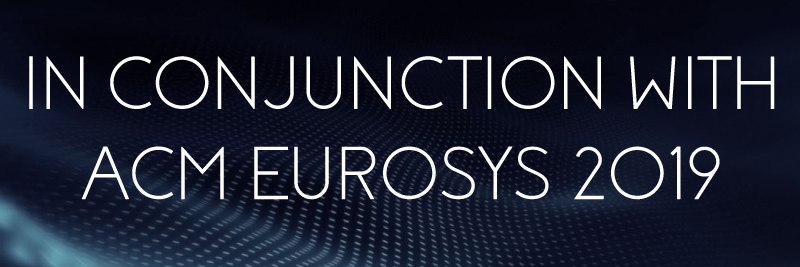Workshop Submission
Call For Papers
Given the growing demand for real-time gathering and processing of vast amount of data from data-intensive services such as autonomous driving and augmented reality (AR), we are witnessing a visible trend to push computing and data analytics closer to the edge of networks for benefits in low latency, reliability, throughput, security and privacy. Supported by lightweight virtualization technologies such as Docker Containers and Unikernels, the edge computing paradigm aims to offer efficient access to various geographically distributed computing resources. The active research work on mobile data and computation offloading (e.g., Cloudlet, Tasklet, ThinkAir, and MAUI) also support this vision. In addition, as data analytics and machine learning are increasingly offered as a service, the next phase of evolution is to extend the offerings beyond basic algorithms and push the analytics closer to the edge where the data from users and devices is first captured. In this regard, edge computing has the potential to enable a new class of real-time data analytics platforms and services. We expect such edge-driven data analytics will emerge and reshape the existing cloud-based data processing pipelines. The knowledge from this new edge pipeline can further power future cyber-physical and network services, such as cognitive assistance and proactive accident prevention for autonomous driving.
The 2nd International Workshop on Edge Systems, Analytics and Networking (EdgeSys 2019) aims to bring together system researchers, data scientists, engineers and practitioners to identify open directions and discuss the latest research ideas and results on edge systems, analytics and networking, especially those related to novel and emerging technologies and use cases. EdgeSys focuses on systems, analytics and networking aspects, covering system architecture, distributed ML algorithms, decentralized networking, distributed consensus and ledger techniques, edge services and data analysis. The topics include but are not limited to the following:
- System Architecture for Edge Computing
- Communication and Computation Abstractions
- Distributed Machine Learning for Edge Analytics and Services
- Edge-driven Data Analytics
- Novel System and Networking Design for Data-intensive Services
- Edge Security and Privacy
- Lightweight Virtualization for Edge Computing
- Distributed Consensus Algorithms and Ledger Technologies
- Infrastructure and Toolkit for Edge Computing and Analytics
- System Performance and Measurement
- Edge Networking and Communications
- Edge-enabled IoT Services and Application Taxonomy
- (Autonomous) Management for Edge Systems
- Security and Trust Management
Submission Guidelines
Authors are encouraged to submit papers describing original and unpublished research, not currently under review in other venues. In particular, innovative, early-stage ideas and preliminary results are welcome. Papers must be submitted electronically as PDF files, formatted for 8.5x11-inch paper. The length of the paper must be no more than 6 pages in the ACM double-column format (10-pt font), including references and everything. Authors are suggested to use the ACM Master article template. The reviews will be single blind. The first page must contain an abstract, the name(s) and affiliation(s) of the author(s), as well as the corresponding contact information. Each submission will receive independent, blind peer reviews from the program committee. Accepted papers will be published in the ACM Digital Library. At least one of the authors of every accepted paper must register and present the paper at the workshop. The program committee will elect one paper for the Best Paper Award.
Submission Link: Here
Important Dates
- Submission deadline: 21 January 2019
- Acceptance notification: 14 February 2019
- Camera ready: 1 March 2019
- Workshop date: 25 March 2019


